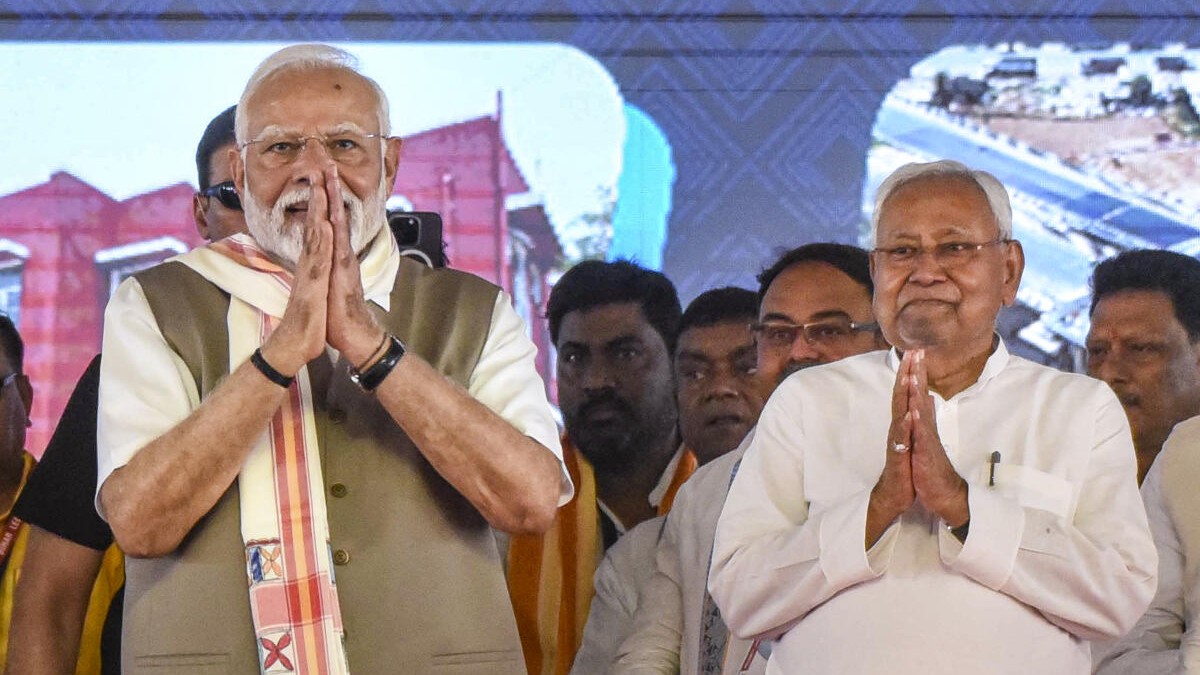Prime Minister Narendra Modi’s visit to Siwan on Friday marked a significant moment in Bihar’s developmental trajectory, with the unveiling of a slew of infrastructure and welfare projects worth over ₹5,000 crore. From modern rail services to urban sanitation, power storage, and housing schemes, the initiatives unveiled reflect a multi-sector strategy aimed at strengthening regional infrastructure and raising the quality of life in one of India’s most populous and politically vital states.
The centrepiece of the visit was the launch of a new Vande Bharat Express, which will operate between Patliputra and Gorakhpur, enhancing connectivity for key northern Bihar districts such as Muzaffarpur and Bettiah. With reduced travel times, upgraded passenger facilities, and faster links to eastern Uttar Pradesh, the new train is expected to play a pivotal role in boosting inter-state commerce and mobility.
Adding a global dimension to the day’s events, PM Modi flagged off the first export-ready locomotive from the GE-led Marhowrah Plant. Destined for the Republic of Guinea, this state-of-the-art engine is fitted with regenerative braking, advanced AC propulsion, and digital control systems—showcasing India’s industrial capacity under the ‘Make in India’ and ‘Make for the World’ initiatives. This milestone positions India not just as a manufacturing hub but also a key player in the global green mobility market.
On the sustainability front, the Prime Minister inaugurated six Sewage Treatment Plants (STPs) under the Namami Gange mission, at a combined cost of over ₹1,800 crore. These plants are critical to the ongoing effort to restore the health of the river Ganga and improve sanitation infrastructure in Bihar’s urban centres. The STPs are designed to significantly reduce untreated wastewater discharge and improve river ecology while creating long-term public health benefits.Extending the state’s clean water and sanitation reach, the Prime Minister laid the foundation for multiple urban infrastructure projects worth over ₹3,000 crore, aimed at improving access to potable water and effective sewage treatment across several towns. These investments are seen as vital steps toward achieving more equitable urban growth and basic service delivery.
The announcement of a 500 MWh Battery Energy Storage System (BESS) across 15 grid substations—including Siwan, Bettiah, Motihari, and Muzaffarpur—underscores the government’s focus on energy resilience and innovation. The BESS units, each ranging between 20 to 80 MWh, will enable electricity storage during off-peak hours, helping distribution companies avoid costly energy purchases and ensuring a stable power supply during high-demand periods.
In line with his government’s commitment to inclusive urban development, the Prime Minister also disbursed the first instalment of financial assistance under PM Awas Yojana–Urban (PMAY-U) to over 53,600 beneficiaries across Bihar. He also handed over keys symbolically to some families who recently moved into their completed homes. The event marked the completion of more than 6,600 houses under the scheme, reaffirming the Centre’s push for affordable housing for the urban poor.With the state assembly elections on the horizon, PM Modi’s fifth visit to Bihar this year signals both political intent and administrative focus. While energising the local BJP cadre, the visit also reinforced the central government’s developmental narrative—one that cuts across sectors and seeks to build a future-ready Bihar.
As projects related to transport, housing, energy, and sanitation take root, the spotlight now shifts to timely implementation and measurable outcomes. For Bihar, long viewed through the lens of migration and underdevelopment, this new wave of infrastructure may well chart a path towards a more resilient and inclusive urban future.
Also Read : Pune Flood Control Project Stalled Over Fund Hold


